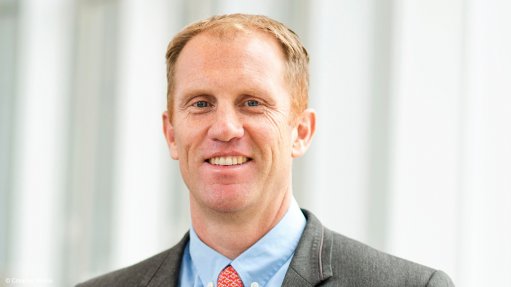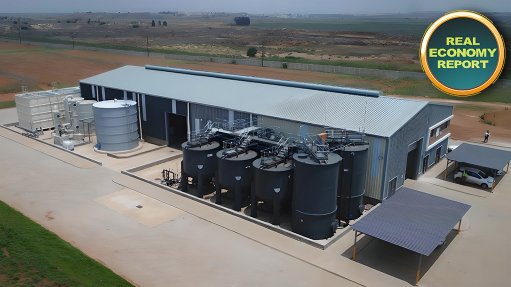Inequality explosion
South Africa has the unenviable distinction – nay, infamy – of being the most unequal country in the world, with a Gini coefficient of 0.65. This is little wonder, given the country’s unemployment scourge and the massive income chasm between the top earners and those on the lowest rung of the totem pole, with a recent study having revealed that the CEOs of some of the country’s corporate giants earn as much as 1 000 times more than minimum-wage employees.
This, however, is not just a South African phenomenon, and it’s worrying that the gap is widening. In a report published earlier this year, aptly titled ‘Survival of the Richest’, international advocacy group Oxfam notes that the richest 1% of the world’s population hogged almost two-thirds of the wealth created since the advent of the Covid-19 pandemic. A significant proportion was linked to the piles of public money invested by governments to support their citizens in the face of the pandemic.
Oxfam observes: “Millions are still reeling from the continuing impact of Covid-19, which has already killed 20-million people. Poverty has increased for the first time in 25 years, [but there have been] winners – the very rich have become dramatically richer and corporate profits have hit record highs, driving an explosion of inequality.”
Let’s put monetary values to all this. According to Oxfam’s calculations, the world’s food and energy companies more than doubled their profits last year, which enabled them to dish out $257-billion in dividends to their wealthy shareholders.
Inequality has manifested itself in more ways than just income levels. As I lamented in this column a few weeks back, it is poorer communities that are bearing the brunt of climate change, despite having contributed the least to global warming. Moreover, in this era when the digital economy is taking hold, the gap between those with access to the Internet and those without remains stubbonly wide.
Hunger also abounds among those with little or no regular income. The United Nations’ World Food Programme agency describes the situation thus: “Conflict, economic shocks, climate extremes and soaring fertiliser prices are combining to create a food crisis of unprecedented proportions. As many as 828-million people are unsure of where their next meal is coming from. We have a choice: act now to save lives and invest in solutions that [ensure] food security, stability and peace for all, or see people around the world facing rising hunger.” All this is happening at a time of relative food abundance globally.
As would be expected, the income inequality and its consequences, coupled with the parlous state of many economies, have brought about an air of gloominess in much of the world, if a survey conducted by the highly regarded US-based Pew Research Center is anything to go by. According to the survey, the results of which were released last month, a median 70% of adults across the 24 countries surveyed described their nations’ economic situation as “bad”.
What’s more, a higher percentage – 75% or above – of adults in Argentina, Italy, Japan, Kenya, Nigeria, South Africa, South Korea and the UK – assessed their nations’ economies negatively. It was only in India, Indonesia, Mexico and the Netherlands that survey respondents favourably assessed their nations’ economies, while views were roughly split down the middle in Israel and Germany.
In most of the countries surveyed, negative sentiment has worsened since last year, driven by anxiety over inflation and cost of living crises – this at a time when the wealthy in many of these countries are getting richer.
Perhaps the governments of this world should give serious consideration to Oxfam’s suggested solution to the ever-widening rich-poor divide. If the advocacy group had its way, the wealth and number of billionaires in the world would be halved between now and 2030 by increasing the tax burden on the top 1% and implementing other billionaire-busting policies. In this way, both the number of billionaires and their bank balances would be brought to their 2012 levels.
I’m not holding my breath in anticipation of this happening – at least in my lifetime.
Comments
Press Office
Announcements
What's On
Subscribe to improve your user experience...
Option 1 (equivalent of R125 a month):
Receive a weekly copy of Creamer Media's Engineering News & Mining Weekly magazine
(print copy for those in South Africa and e-magazine for those outside of South Africa)
Receive daily email newsletters
Access to full search results
Access archive of magazine back copies
Access to Projects in Progress
Access to ONE Research Report of your choice in PDF format
Option 2 (equivalent of R375 a month):
All benefits from Option 1
PLUS
Access to Creamer Media's Research Channel Africa for ALL Research Reports, in PDF format, on various industrial and mining sectors
including Electricity; Water; Energy Transition; Hydrogen; Roads, Rail and Ports; Coal; Gold; Platinum; Battery Metals; etc.
Already a subscriber?
Forgotten your password?
Receive weekly copy of Creamer Media's Engineering News & Mining Weekly magazine (print copy for those in South Africa and e-magazine for those outside of South Africa)
➕
Recieve daily email newsletters
➕
Access to full search results
➕
Access archive of magazine back copies
➕
Access to Projects in Progress
➕
Access to ONE Research Report of your choice in PDF format
RESEARCH CHANNEL AFRICA
R4500 (equivalent of R375 a month)
SUBSCRIBEAll benefits from Option 1
➕
Access to Creamer Media's Research Channel Africa for ALL Research Reports on various industrial and mining sectors, in PDF format, including on:
Electricity
➕
Water
➕
Energy Transition
➕
Hydrogen
➕
Roads, Rail and Ports
➕
Coal
➕
Gold
➕
Platinum
➕
Battery Metals
➕
etc.
Receive all benefits from Option 1 or Option 2 delivered to numerous people at your company
➕
Multiple User names and Passwords for simultaneous log-ins
➕
Intranet integration access to all in your organisation
















